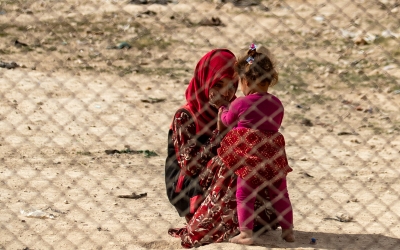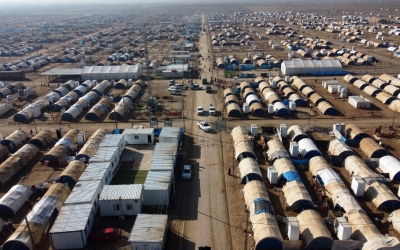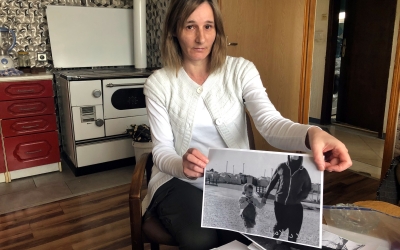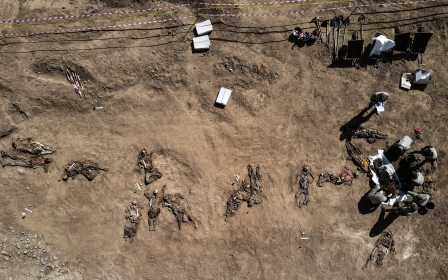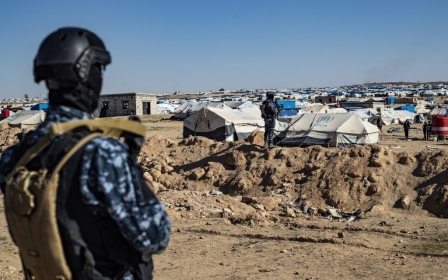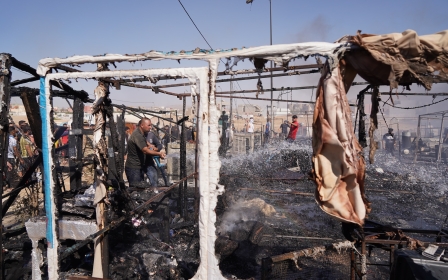'This is untenable': US says foreign IS fighters need to be repatriated from Syria and Iraq
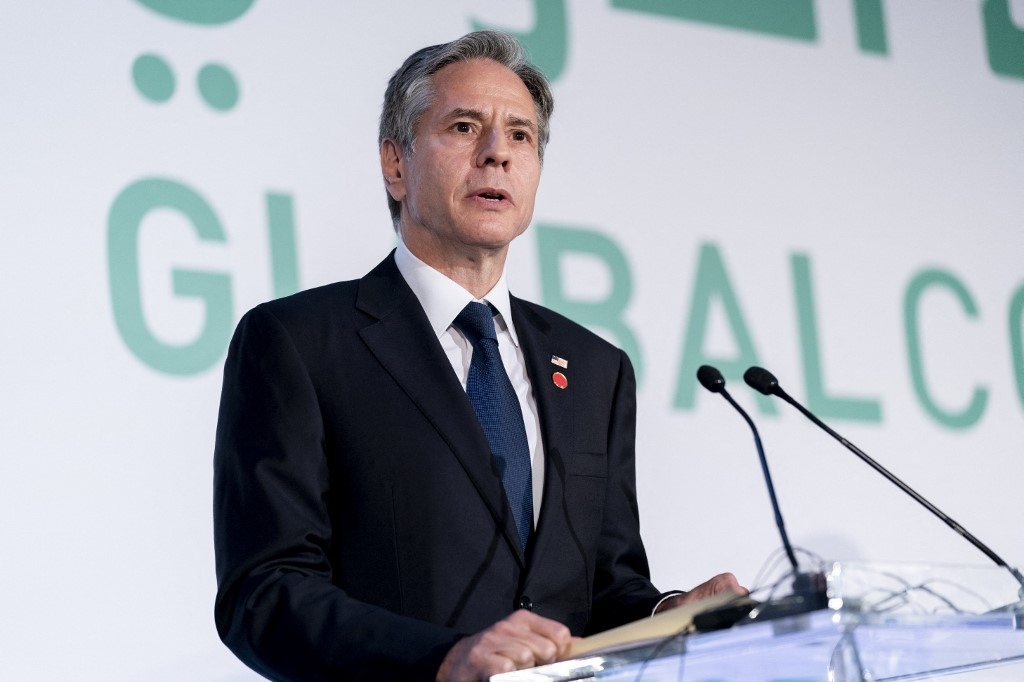
Foreign Islamic State (IS) fighters in Iraq and Syria must be repatriated to their home countries where they should be prosecuted if possible, the US secretary of state said at a summit in Rome of the international coalition against the IS group.
Antony Blinken, during his opening remarks ahead of the foreign ministers' summit on Monday, underlined the need for countries - primarily France and the UK - to accept their citizens being held in detention, many of whom were captured more than five years ago.
"This situation is simply untenable. It just can't persist indefinitely," Blinken said.
"The United States continues to urge countries - including coalition partners - to repatriate, rehabilitate and, where applicable, prosecute its citizens."
Despite being two of the US's closest allies, France and Britain have continuously resisted Washington's repeated calls to accept their citizens who travelled to Iraq and Syria to join the IS group, mostly between 2014 and 2018.
Both countries fear they have no reliable legal mechanism to prosecute the fighters, meaning many of those alleged to have joined the IS group would be released without condition upon re-entry. Concerned by the potential danger of such an outcome, both France and the UK are also worried about the strain monitoring such men could impose on intelligence services.
Meanwhile, both countries have also largely refused to repatriate the wives and children of suspected IS fighters. In total, around 43,000 IS-linked foreign nationals are being held in Syria.
Repatriation leadership
During his address, Blinken praised Italy for being one of the few western European countries to widely repatriate its citizens and commended Finland, which he said had "shown leadership in its repatriation of multiple families from Finland originally".
Blinken also hailed the efforts of Kazakhstan, which he said had brought back 600 fighters and their family members and put them in rehabilitation programmes.
Other central Asian countries such as Uzbekistan, Tajikistan and the Kyrgyz Republic had also made great efforts to bring back citizens, Blinken said, as have several Balkan countries, including Bosnia and Herzegovina, Kosovo, North Macedonia.
Ahead of Monday's summit, Mazloum Abdi, the leader of the Syrian Democratic Forces (SDF) that lead the fight against the IS group in Syria, also called on members of the coalition "to help return these people to their home countries, fund education and deradicalisation programmes, and support stability and strong economic recovery in the liberated areas to address the root causes of extremism".
The summit on Monday was the first anti-IS coalition meeting of its kind to take place in two years. The 83-nation coalition fractured under the presidency of Donald Trump, partly due to his unilateral decision to withdraw US troops from Syria.
Ongoing repatriation efforts
In a joint statement on Monday, the coalition ministers underlined the importance of "pursuing existing effective justice and accountability mechanisms" against suspected foreign IS fighters "in close coordination with the countries of origin", but did not mention explicitly the need for repatriation.
"The Ministers further recognized that the situation for Daesh/ISIS detainees and family members in northeast Syria is of grave concern and recognized the importance of finding a comprehensive and long-term solution to this serious issue," the ministers said, using alternative acronyms for the IS group.
Tens of thousands of people await their fate in the crowded, disease-ridden camps of northern Syria. In al-Hol camp for the family members of suspected IS fighters, there are believed to be around 63,000 being held by the SDF. Most of those detained there are from Iraq or Syria, but about 10,000 - more than half of whom are children - are from other countries.
Earlier on Monday, a Canadian woman was released from the camp and taken to northern Iraq where she is expected to be permitted flight to Canada. She is the first adult Canadian to be repatriated from al-Hol. Her four-year-old daughter was repatriated in March.
What awaits her upon her arrival in Canada in the coming weeks remains uncertain, Canada's Global News reported.
Recently Belgium announced that more than a dozen IS supporters would face trial this year for their alleged role in the November 2015 Paris attacks in which 130 people were killed. The man suspected of being the only surviving attacker, Salah Abdeslam, is to face trial in Paris in September.
The US had a relatively small number of citizens travel to Syria, but it says it has repatriated 28 Americans: 12 adults and 16 children. Ten of the adults have been prosecuted on terror charges.
Earlier this year, the US military chief in the Middle East warned that the radicalisation of children at camps in Syria for the relatives of suspected IS members poses the biggest threat to the region.
"These children, in particular, are being radicalised, and unless we find a way to repatriate them and reintegrate them and deradicalise them, we're giving ourselves the gift of fighters five to seven years down the road, and that is a profound problem," said General Kenneth McKenzie, head of US Central Command, in April.
Middle East Eye delivers independent and unrivalled coverage and analysis of the Middle East, North Africa and beyond. To learn more about republishing this content and the associated fees, please fill out this form. More about MEE can be found here.


